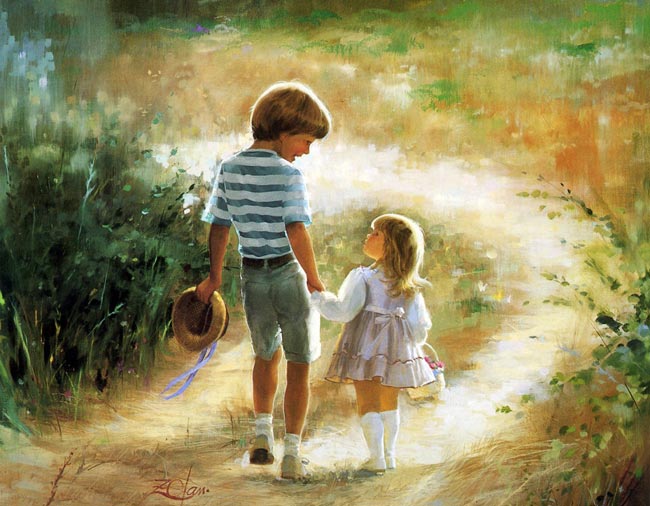Poems about goodness and kindness.
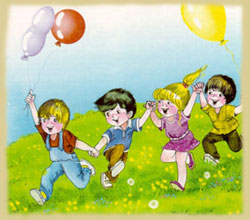

"Yesterday I decided
Be good…”
R.Sef.
How to help children become sensitive, generous, merciful, how to put a barrier to rigidity, callousness, anger in a timely manner? Are there ways leading to the cultivation of good feelings. Many scientists, educators, and just people thought about this question. This question remains relevant today. You agree with me? “If a child is taught good, the result will be good, if evil is taught, the result will be evil - for a child is not born a ready-made person, he must be made a person!” - V.A. Sukhomlinsky.
From this statement it is clear that we, adults, can and should make a good child. What do you need to know and do to teach children to be kind?
It is necessary to love the child, because without this it is impossible to educate the humane soul of a person, and only love facilitates education.
It is very important to ensure peace of mind and balance. Not a single sphere of communication should irritate the child, give rise to fear, despondency, humiliation in him.
The personal example of an adult, and especially parents, is an important moment in raising good feelings in a child. An example in everything: in communication between spouses and other family members, caring for the older generation and kids, caring for pets. After all, responsiveness and compassion, the desire to help, support in difficult times is the basis for cultivating kindness in a child. “It is difficult to lead to good by moralizing - it is easy by example” (Seneca).
People say: "A kind word wears away a stone." To nurture good feelings in a child, it is necessary to correctly evaluate the actions, and especially the actions of children. For a child, it will become more interesting and understandable if you state everything in poetic form. Poems are able to convey what is difficult to explain in simple words. Poems have a special energy. In addition, the poetic form attracts children with its rhythm, lightness, melodiousness, and also with the fact that poems convey the essence with the help of images, and the child mainly thinks in images. In addition, the heroes of children's poems about kindness are most often close to children in age - the same children, preschoolers or younger schoolchildren. Often the heroes of poems are animals and their cubs, to which almost every kid has a weakness. Kittens, puppies, ducklings - you always want to feel sorry for them who are in trouble. And, of course, mothers are present in the poems about kindness. It is the mother for the baby - the source of all positive emotions and kindness.
Acquaintance with poems about kindness is important for a child. The purpose of our manual is that parents, teachers, introducing children to poems about kindness and kindness, lay in it the sprouts of humanism and respect for everything that surrounds it. And most importantly, the confidence that this whole world is kind and also kind to him. The verses we have selected suggest a subsequent conversation with the child. In this case, there are questions that can be asked to the child.
In addition, poems for children solve a certain educational problem. Therefore, poems addressed to children teach adults first of all. To provide educational assistance to both parents and teachers, we suggest that you read the comments that can supplement and clarify knowledge.
We will be very happy if our manual will help you to understand the child, to raise him correctly.
R.Sef. "Kindness".
Yesterday I decided to be kind
Respect and love everyone.
I gave Sveta a ball,
I gave Petya a ball,
Kolya gave the monkey
Bear, rabbit and dogs.
Hat, mittens and scarf
I gave it to Gala.
And for my kindness
I was punished.
What did the boy do?
What does he call himself?
Why was he punished?
What does it mean to be kind?
The peculiarity of the child's understanding of moral norms is that he presents them concretely and literally, because. the thinking of preschoolers is visual. He cannot always distinguish the external signs of a phenomenon from its true essence. Do not rush to punish him for giving away his toys, wanting to be kind. Show that there is a generalized content behind the specificity of the norm. Kind - this is the one who helps mom in cleaning the room, does not offend the younger, protects the weak.
Z. Aleksandrova "Bouquet".
Tanya ran for flowers,
She will give her bouquet to her mother ...
It's hot in the field, the sun is shining brightly.
The girls are calling Tanya to swim, -
She wants to go to the river herself.
But chamomile with cornflowers fades,
We need to take them home as soon as possible.
She needs to run without stopping.
The sun warmed up hot
And chamomile bright heads
They put Tanya on the shoulder ...
Tanyushka ran to the house,
Butterfly followed her
And now stands in a green mug
The first bouquet collected by Tanya.
Where did Tanya go?
To whom will she give the bouquet?
Why didn't she go swimming with the girls?
Do you think mom will be happy with Tanya's bouquet?
Why do you think so?
How can you make your mom happy? Do it for her?
The desire to please another, to please him, gradually begins to prevail over the immediate desires of the child. Motives that are meaningful to others win out over personal ones. This requires interested support from an adult. Make sure you notice and appreciate it. Show that you are proud of your child.
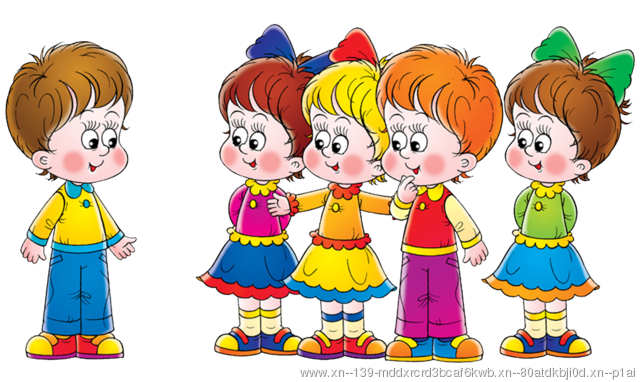
N. Naydenova. "New Girl".
The girl is new in kindergarten.
I'll go to the new girl.
Here are our cubes, we are building houses.
You can also learn how to build yourself!
Come on, I'll take you to the guys.
All girls love kindergarten.
How does a new girl feel when she comes to kindergarten for the first time?
What did the other girl do to make the new girl feel good in kindergarten?
How can it be called?
And what feelings did the newcomer experience when they became friends with her?
Did it happen to you when you were in a strange place for the first time?
What feelings did you experience?
Have you been helped to overcome (shyness, fear, sadness)?
Z. Aleksandrova "Ball".
On a rope at Varya Our Varya almost cries:
Red ball with a cockerel. Very sorry for her cockerel.
Oh what a beautiful ball! Tanya approached her friend,
Everyone dreams of this. I began to console Varya:
But suddenly the wind rose - - We won't get your ball,
The ball is out of hand! So let's play with mine!
A red ball flies away, a little white bunny on it,
High under the clouds. Let's play with him!
What ball did Varya have?
Why did the girl almost cry?
What did Tanya do to comfort her?
Can girls be called real friends?
Why do you think so?
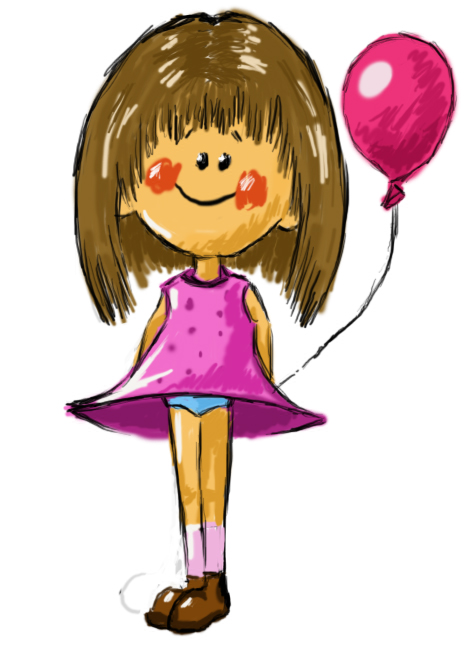
The desire to help, to encourage another in a child appears not only in relation to an adult, but also to a peer. Sensitivity is a very valuable moral quality: the baby understands the state of another person, refuses something in his favor, gives him the opportunity to rejoice, to take care of equality. Support, appreciate, small sprouts of sympathy, so that its manifestations become a need, so that a habit of moral behavior is formed.
B. Zakhoder. " None"
We got a mischief-maker. Who painted on the wallpaper?
The whole family is grieving. Who tore the coat?
In the apartment from his pranks Who is in daddy's table with his nose
Literally no life! popped?
Nobody, nobody, nobody!
No one is really familiar with him, - No one is a terrible tomboy!
But everyone knows, But the mother said sternly.
What is always to blame for everything We must finally
Only he alone - no one! About to punish!
Who, for example, climbed into the buffet, No one will go today
I found sweets there Neither for a visit, nor for a movie!
And all the candy papers Are you laughing?
Who threw it under the table? And my sister and I
Not one bit funny.
What happened in this family?
Why don't children find this story funny?
How did these children feel?
Were the children guilty or not? Why?
Punishment should be resorted to only in exceptional cases. But they still should not hurt the baby's pride. You can not be punished repeatedly for the same act. Punishment should immediately follow the offense so that the child understands what he is being punished for. Show your child that they still love him and hope that his act will not happen again.
G. Sapgir.
How great is that-
Here is my new plane.
Ride - I will be glad!
Here are the candies - one, two, three! -
I'm not sorry - take it!
Everyone wants to catch the ball -
Let his brother catch him!
What a great thing -
Share everything equally with your friends!
What is the mood of the child in this poem? Why
What does it mean to be friends?
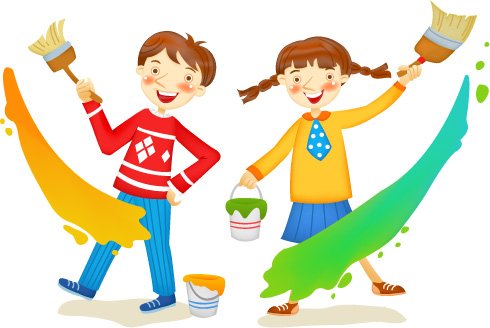
Already a preschooler understands that a friend is not only the one with whom you play. True friends always help each other, share toys, do not quarrel. Friendships formed in early childhood can be very strong and endure throughout life.
E. Blagina "Gift".
A girlfriend came to me, I'm bored without a toy-
And we played with her. Favorite was -
And here is one toy But still a girlfriend
Suddenly she liked it: she gave the frog away.
clockwork frog,
Cheerful, funny.
What was the girl's favorite toy?
Why did she give it away?
Do you share your toys with your friends?
Do your friends share with you?
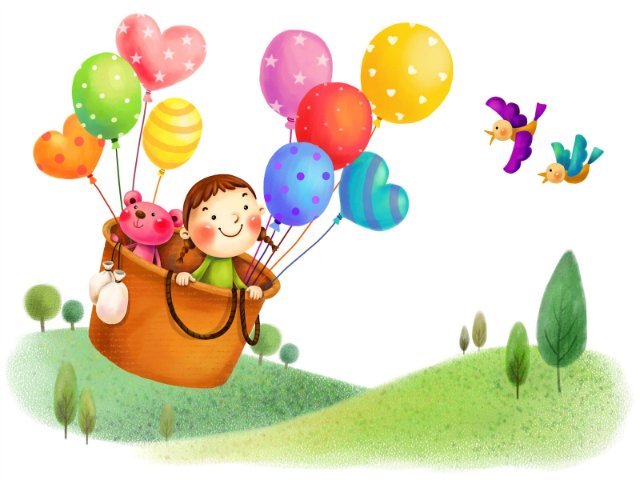
I. Tokmakova "Quarrel".
You offended me, I was your close friend.
And tell me why? Everything. Now it's over.
Lollipop in hand clamped, You offended me.
I won't eat it all! Leave. It's time.
I asked for just a little, It would be better if the cat ran
He asked for a tiny one, Just from the yard.
Carefully, a corner of milk would be from her mug
I would take a bite. I would pour it in a saucer.
Well, well, that he is English - About you, a bad girlfriend,
This lollipop. I would immediately forget.
How did the boy feel?
How did the girl offend her friend?
In what situations can a person feel hurt?
How do you behave when you are offended?
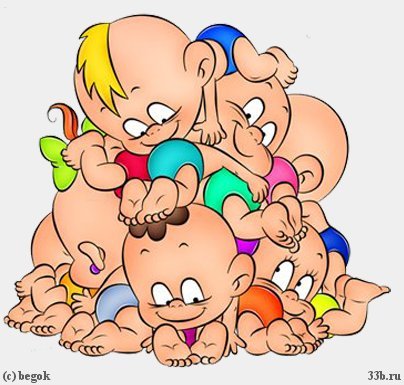
A. Kuznetsova "We quarreled."
We quarreled with a friend, I just ran away with a bear
and sat in the corners. And she said: “I won’t give it back!”
Very boring without each other! I will go and make peace.
We need to reconcile. I'll give her a bear, I'm sorry
I didn't offend her, I'll give her a ball, I'll give her a tram
I just held the bear, And I’ll say: “Let’s play!”
Why did the girls fight?
Why do they want to reconcile?
Do you often quarrel with your friends?
What is a quarrel?
And how does a quarrel arise, where does it start?
Has there ever been such a thing in your life that you yourself started a quarrel?
What do you like about fighting? (you can quarrel several times)
What's not to love about fights?
Is it possible not to quarrel at all? How?
And if you already quarreled, how can you make peace?
A. Shibaeva. "Girlfriends".
Ball inflated two girlfriends
They took each other from each other -
All scratched.
The balloon burst, and two girlfriends
Look, there is no toy.
They sat down and cried.
Why did the girls fight?
What feeling did they experience?
What happened as a result of the quarrel?
Could it have been done differently? How?
For a child, knowing moral standards does not mean acting in accordance with them. The kid understands that it is necessary to share toys, but takes them all to himself: he knows that you can’t quarrel, but often it comes to a fight. It is possible to say that a child is developed morally only when he not only knows how to act correctly, but also is guided by the norms in his behavior. The example of an adult is very important here, proving that your word does not diverge from your deed.
Zh. Titunova "I'm a terrible envious"
I'm a terrible envious, Whom mother will allow
I envy everything. Take a kitten home
I envy, I envy, Who laughs merrily
I envy that, And we fly, and in the winter.
Who jumps carelessly and doesn't even fight
Through the puddles barefoot No evil dogs, no bees,
And never whimpers, Who knows a lot of songs
I'm not familiar with the common cold. And I read all the books.
Who instantly draws I am a terrible envious,
Chicken, house, forest, I envy everything.
Who can on the swing I envy, I envy
Reach for heaven. I envy...
What is the girl's mood?
Why does the girl call herself envious?
Have you experienced envy?
Can envy be a positive feeling?
There lived a cheerful hedgehog in a large water forest.
I once saw a rabbit hedgehog in the garden.
The rabbit digs the beds, and the crop is harvested:
He collects carrots and cabbage, and beets.
The prickly hedgehog thought and envied him:
“The rabbit has a rich harvest, how cool is it ?!”
And he decided for himself: “I’ll dig up a garden.
And I will plant: strawberries, parsley and peas!
The hedgehog worked day and night, and now this hour has come.
He gave the rabbit a full basket of strawberries!
And the rabbit treated cabbage, and together with the Hedgehog they,
Drinking tea from a huge mug
They ate pies with cabbage and strawberries.
What feeling did the hedgehog and the bunny experience at the beginning of the poem?
And at the end?
To bring children to the fact that the feeling of envy is sometimes very useful, because it pushes a person to do good deeds.
" Politeness".
Meet - this is Politeness.
And here are her words:
Thank you, sorry,
Please forgive me!
In communication with each other
We all need them.
Excuse me, are you comfortable?
And be so kind!
And life is very important
Repeat them often
So that everything is fine
So as not to offend people with sad words.
What magic words helped to remember the poem?
What does "politeness open all doors" mean?
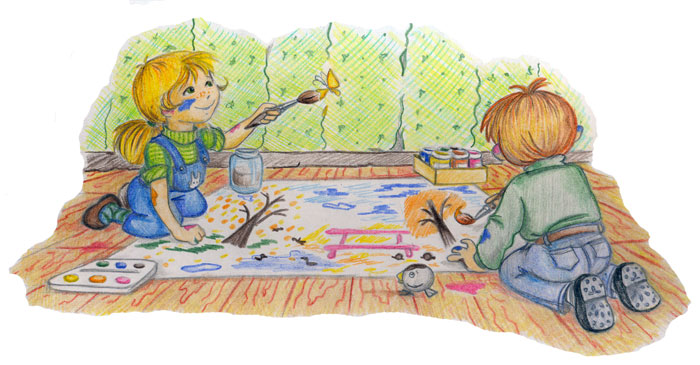
"Impolite courtesy".
Promised Father Petrus:
I'll take the courtesy:
I will thank everyone
Say "hello" first!
Here is a boy with diligence
Fulfills the promise.
Sees - in the morning at the gatehouse
The watchman is dozing on the threshold.
He did not sleep at night,
Only - just dozed off.
And Petrus how to scream
- Good morning, grandfather Fedot.
Grandfather scolded him awake:
- Get out the shooter.
Here Petrus caught up with Yarinka,
Yes, how to pull a scarf:
Where are you, Yarinka, stop,
I greet you.
She stepped aside...
What a rude girl...
Seryozha carried a pile of books,
And Petro jumped from the fence.
Almost sat on his shoulders.
Sorry, good evening!
- You, - Seryozha shouted -
And ignorant, and impudent!
Petya is very surprised:
Was he impolite?
What polite words did Petya say?
Why is the poem called Impolite Politeness?
What would you advise Pete?
What does it mean to "be polite"?
S. Pogorelsky "Polite".
That's who courtesy we have
Showed in practice -
He's in the midnight nap
I got my mother out of bed.
- What happened to you?! -
Mother jumped up.
Are you sick, son?
- I forgot to tell you:
Mom, good night!
Is it possible to call a baby polite? Why?
What does it mean to be polite?
When a child begins to master a new moral standard for him, he tries to fulfill it at all costs, while violating others. In this case, explain to him why he is wrong, but show that you are pleased with his desire to follow the requirements of an adult.
A. Barto "Loneliness"
Tired of adults, Only I'm a football player,
They pester with questions And there is no one to play with.
Then I don’t eat porridge, It’s good to live in a hut,
Do not argue with adults Only bad at heart.
I will live alone in the forest
Reserve strawberries. I'll build huts for everyone!
It's good to live in a hut, I'll invite all the boys,
And I don’t want to go home, I’ll give everyone a hut.
To me, as a dad, I’ll write to my dad and mom.
Loneliness Send postcards to everyone!
I will listen to the bird whistle Come for good!
In the morning in the woods
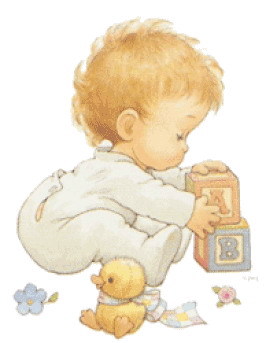
I. Polonsky.
Here are those on! Broke a cup!
Who would I lie to
On Valetka or Masha?
Or just run away?
Lie, cheat and lock yourself up -
It's mean, they say.
No, I'd rather confess
Let them scold a little.
What happened in the poem?
What did the girl want to do?
And how did she do it?
Did the girl do the right thing? Why?
What are people called who tell the truth? (truthful, honest).
What do you call people who tell lies? (liars, liars).
Is honesty a good quality? Why?
Is it hard to be honest?
What honest deeds have you done?
One of the reasons for children's lies is that it is difficult for a child to admit his inability to do something. Do not rush to punish! Explain that it is not shameful not to know how, it is shameful not to want to learn.
The reason for lying may also be the unwillingness to be responsible for their actions, the fear of punishment. This lie requires unconditional, but tactful condemnation. Use the method of natural consequences: if things are lost by themselves, let them be found.
V. Azbukin "An example of accuracy"
Infantry, guns, cavalry In the closet are closed.
Storming window sills, Sister smiles at them,
Cars drive around the table, Calls by name.
A boat floats on the floor, and the dolls wake up,
And even on the pillow They sit here and there:
The toys were set up. Marina, Tanya, Masha, Nina-
Sister swears again: On a chair, on a table, on a piano,
"Put it right!" Over napkins and notebooks ...
Examples of neatness Do toys like mess?!
She gives me:
Will open the door happily
And get the dolls.
Dressed to the nines
Combed, washed,
They're up on the shelf
Can a baby be called neat?
Why?
And what is the name of the one who does not follow the toys, his clothes?
What does it mean to be careful?
E. Serova. "Bad story."
The guys today have Paradise Good for Natasha the mouse
Selected the plane, Protects the round dance
Teddy bear, parrot, Missed the mouse in the circle,
Steam locomotive and ship. Released twenty hands
Duck, pipe, crocodile Calm down, mouse. cat
Dragged into a corner Passage is closed for you.
And she blocked it with her hand, Everyone plays so much fun
So that no one could take away And they laugh and make noise,
And the guys say: And in the corner of poor Rai
- Take at least everything, The game is not going smoothly.
We can do without a bear. She is languishing duck,
We don't need a boat. Doesn't dive, doesn't swim
Let's play cat and mouse, she has a songbird
Chur, I'm a cat. Rai couldn't hold back her tears
Here behind the mouse Paradise hung her nose.
Here for a mouse in a jump She has toys - a cart,
Nikita the cat ran. And it's not fun to play!
Why did Raya take away the toys from the children?
How did the children start playing?
Why were they having fun, but Raya was crying?
What does Rae need to do to be accepted into the game?
Who is called greedy?
Is it a shame to share?
Why is it bad to be greedy?
Do they share with you?
And you are pleased when you say thank you.
What is the name of the person who shares with everyone?
It is very difficult for a child to objectively assess his moral qualities. After all, for this you need to be able to look at yourself from the outside, which a preschooler cannot yet. It is much easier to evaluate another as greedy, sloppy, pugnacious than to say: “I am greedy!”. But by evaluating a peer, comparing himself with him, and also listening to how an adult evaluates your act, the child comes to real self-esteem.
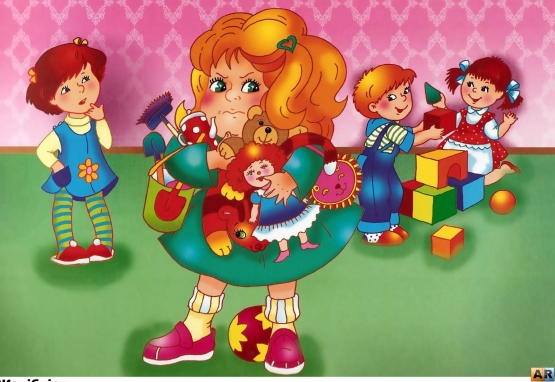
S. Mikhalkov "Willpower".
I confess frankly, and I lie, I lie, I lie,
That in the dark I'm afraid to sleep. I keep my eyes closed.
I want to jump up and fall asleep at last.
And turn on the light as soon as possible, Well, perhaps, I'm not done!
When it's dark around me
And the window is covered. From not excluding the light
I'm afraid of this feeling And whatever it is dark
But by force of will I struggle with it Do not curtain the window.
I tell myself: “Lie down. And sleep until the morning in the light ...
Keep your eyes closed.” But you can also become a coward!
How does the boy feel when he goes to bed?
And what does he do in order not to jump out of bed and turn on the light? Why?
What can be called a boy?
What actions can be called courageous?
What feeling does courage evoke in others? What about cowardice?
Will, a conscious effort aimed at overcoming obstacles on the way to overcoming obstacles, helps to rise above one's momentary desire. Will assumes that the child's choice of goal is motivated, i.e. the kid must answer himself the question: “For the sake of what I will do this?”. He decides how to act - as he wants or as he needs.
M. Smirnova. "Tanya is a clumsy."
There is a girl
Tanya is stupid.
And stockings and boots
They put it on her feet.
Tanya could do everything,
We just don't have the effort.
What a girl -
Tanya is stupid.
Why is Tanya called incompetent?
Can she do everything herself?
How else can it be called?
Why is it bad to be lazy?
What is a person who likes to work called?
The decisive role in the development of will and arbitrariness of behavior belongs to an adult. It is important to take the right position in relation to the child, to give him the opportunity to do it himself, to create situations when he must make strong-willed efforts, show strong-willed qualities: independence, perseverance, and bring things to the end.
E. Moshkovskaya "Vase and grandmother"
Our vase broke, Our vase broke,
Grandma scolded me Grandma scolded me
And I'm not to blame. And I'm not to blame.
And the canary saw that the grandmother
That I'm not to blame! didn't kick me out
And how she chirped our cat!
What I saw, “I'm guilty!
What I saw, I'm to blame!
That almost she did not give out, I told her then.
The one who is to blame!
Why did grandma scold?
Whom did she scold?
Who broke the vase?
Why didn't the boy tell his grandmother that he was not to blame?
The struggle of motives leads to subordination, when the child consciously, and not spontaneously, subordinates his behavior to a motive that is significant to others. It is easier for him to do this if he sees a clear result of his actions: he protected the cat. The child understands. That he did good for others, and is proud of it. It is necessary to support and approve his moral behavior so that it becomes habitual.
V. Eremin. " The villain".
Petya evicted the beetle from the mink,
He drove the cat and kitten out of the attic.
New classics in the square erased.
I threw a boring book into the fire.
And I heard from people I know
That a villain grows out of him.
Peter felt ashamed and afraid.
Petya rushed back to the fire.
He hurries to save a boring book,
Only the fire burns out almost ...
The villain bowed sadly over the ashes.
So he is good, not evil at all.
Why was the boy Petya called a villain?
Did he do the right thing when he rushed to save the book?
Who can be called kind?
Who can be called evil?
How do evil people behave? How are the good ones?
Which of your friends can you call good people? Why?
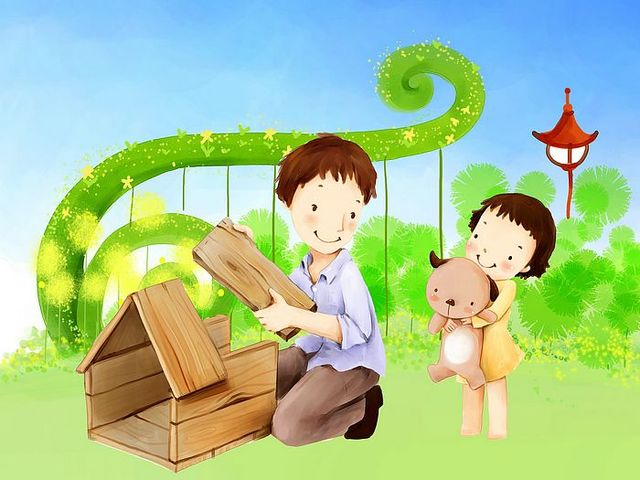
V. Lunin. "Do not offend anyone."
Don't offend anyone
Neither bee nor fly
Not a snail
Not a bug - a dark belly,
Not a grasshopper in the grass
jumping deftly,
Not glittering in the foliage
ladybug,
Neither a tit, nor a thrush,
Not a blind mole...
No way, never
Don't hurt the living!
Why can't you offend all living things?
What are people called who treat insects, animals, birds with kindness?
How to protect wildlife?
E. Serova. "Good Giant"
I'm walking on the lawn - It's a small country
A giant in shorts and a T-shirt. The whole area is populated!
From above it is clear to me If I, the giant, want,
All Green Country. Like a dashing hurricane I will fly!
Here is a snail - a kind gnome. I can do everything at home.
He carries a house on himself, Break it!
Here is an apartment for a beetle - All residents in the meadow
A hole in an old stump. Trample!
Here is a high-rise building - If I want ...
Ants are busy in it, But I don't want to!
Here is a chamomile flower - I am a good giant!
Insects live in it
What is this "green country" on which the boy walks?
Why does he look like a giant?
Why does he call himself a good giant?
Have you been to this country?
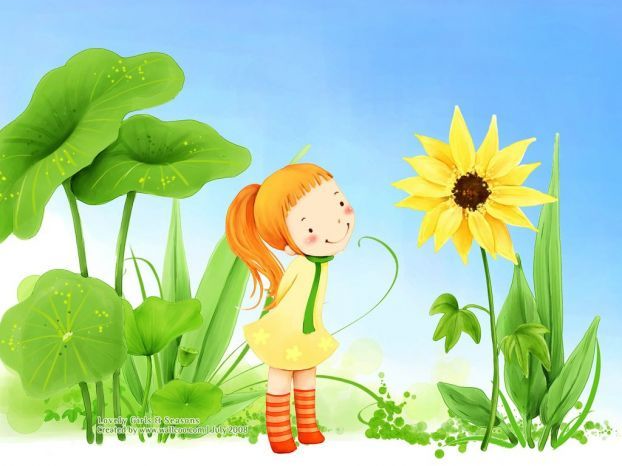
Communicating with nature, a child can harm a living being. The reasons may be different: the desire to get to know a living being better; inability to correctly express delight about what he saw, selfish attitude towards the animal (swaddling and carrying in a car). Therefore, the reaction of an adult should be different. But in no case should such an attitude towards living beings be ignored. If a child takes care of a kitten, a butterfly, a beetle. He will never harm a person.
Cruelty to animals causes indignation on the part of other children. He remains alone among his peers. Thus, the attitude of comrades can affect the behavior of the child: the child strives to communicate with peers and changes his behavior.
G. Ladonshchikov "I'm friends with the boy."
I'm friends with the boy Borey Borya is the best dancer,
I don’t quarrel with him, I don’t argue, Borya draws best of all
Together with Borka I walk, Horses, crows and goats ...
I hold my hand tightly. Knows a whole bunch of fairy tales.
He is the least of all in our group, He is cheerful and obedient,
Apparently he ate little porridge, He gave me a balloon,
That's why I taught my own On a log to walk ...
I give the porridge to Bora. It's interesting to be friends with him.
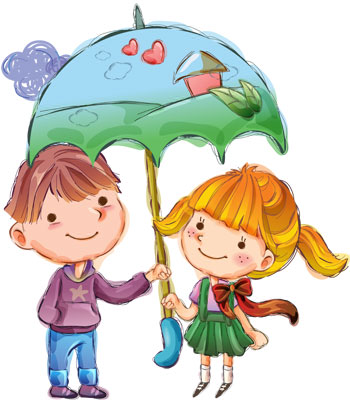
Communication with peers is one of the most important means of moral education. Children show sympathy for each other, which develops into a friendly relationship. And then friendship. Friendly relationships teach to understand and love each other, form important moral qualities and feelings: mutual assistance, caring, sensitivity, empathy. But this only happens if the children are equal.
If your child has no friends, try to understand what's the matter: can't play? Or don't share toys? Do you want to be in charge? There can be many reasons. Teach your child to play - if he can't, share toys if he's greedy. And if you are stubborn, learn to compromise.
Z. Alexandrova. "Bad girl".
Olenka walks, sighing.
- What's wrong with you?
- I am bad!
I kicked the cat
Throw potatoes on the floor
I did not eat semolina porridge.
Tired of being good!...
Isn't it time for Olya to sleep,
To be good again!
Why did Olenka consider herself bad?
What does she need to do to be good again?
What does it mean to be "good"
A. Usanova "Washing"
I am my mother's only son
The mother has no daughter.
How can my mom help me?
Wash handkerchiefs?
Soap foam in the trough -
I'm washing, look!
How does the boy help his mother?
Why does he do it?
How do you help your parents?
Why are you doing it?
M. Yasnov. "Mitten".
Wind whirlwinds spun I'll write an ad
The blizzard howled and screeched. On the sheet, in the middle,
Lonely mitten Lost mitten
She was on the road. I'll report the find.
Lonely mitten Let passers-by read
All frozen, wet, Let passers-by read
Together with a blizzard, a mitten On a pole, near the park,
Hit the doors and windows. Where is the advertisement
"Lost shepherd ...".
I'll pick up a mitten
I will warm in a warm house,
I'll put it down, I'll freeze it,
To your battery.
How did she do?
E. Blaginina "I will teach you how to put on shoes and brother"
I know how to put on shoes, This one is from the right foot.
If I want to. If it rains,
Me and my little brother Let's put on galoshes.
I will teach you how to dress. This one is from the right foot
This one is from the left foot.
Here are the boots.
This one is from the left leg, That's how good it is!
What can a girl do?
Who does she teach how to dress?
How does she do it?
Does a girl like to teach a boy to wear shoes?
How did you guess about it?
How do you help kids?
Do you like doing it?
Shoe duel. Sh. Galiev.
My brother is attached to me.
It does not have a lace.
I tie a shoelace,
I tie and show
I show and tell.
I tell you how to tie.
I tie and untie
I tie and tie...
And I didn't learn right away.
Tie and untie.
What does the older brother teach the younger?
How he does it?
What is his character?
What are the feelings of the younger brother?
How do you help kids?
Realizing his skills, the child not only demonstrates them, but also tries to teach another, for example, his younger brother, sister. At the same time, the child develops a caring attitude towards the younger, a desire to help. Friendly relationships. Adults need to support this desire, emphasize the importance of such actions, that you need his help, trust him. And then, when they grow up, they will support each other.
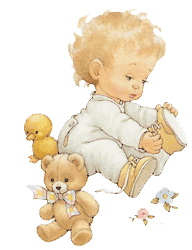
E. Blagina. "Our grandfather."
Our grandfather does not like shadows, we will cover our legs, and then
He loves the sun and warmth. Let's smooth out the gray beard
Trembling at the old knees, Or we will braid in pigtails.
It's hard for the poor thing to walk. And if the grandfather starts a fairy tale,
He does not see anything yet, we sit until dark,
Does not hear anything - deaf, Nobody dares to move -
And the chicken will offend him, Everyone listens with their mouths open.
Our grandfather is very bad! Is there anywhere in the world
But without him, we can not live, Such a friendship as we have?
He is like family to us. Do you want us to tell you these fairy tales
He will come out, we will help him. Will we tell you next time?
Set up a folding chair.
And we'll sit well
How do children help grandfather?
Why do they do it?
How do you take care of your grandparents?
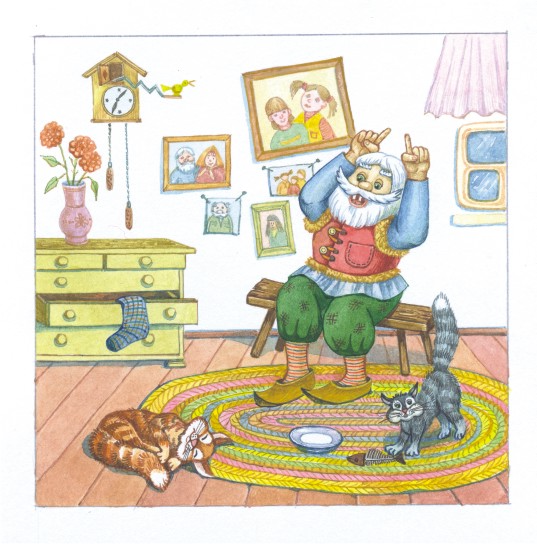
Sympathy, empathy, love and kindness to others should be manifested in the concrete actions of the child. Encourage your child to help those in need.
E. Blagina. " Kitty".
I found a kitten in the garden. I took him home
He meowed thinly, thinly, Fed me to my heart's content ...
He meowed and trembled. My kitten soon became
Maybe he was beaten, just a feast for the eyes!
Or they forgot to let them into the house, Wool is like velvet,
Or did he run away? Tail - pipe ...
How good-looking!
The day in the morning was rainy,
Puddles of gray everywhere...
So be it, unfortunate animal,
I will help your trouble!
Who did the girl find in the garden?
Why did the kitten meow and tremble?
How did the girl help the kitten?
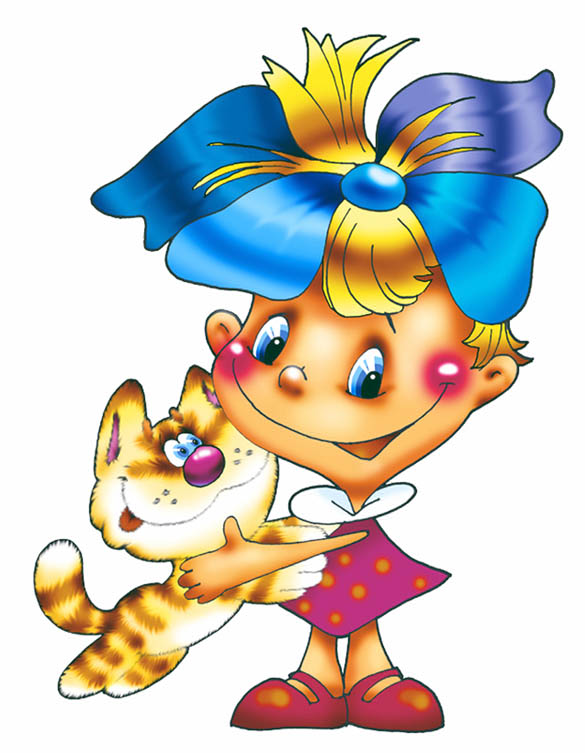
E Moshkovskaya. "Sour Verses".
The sour sun has risen
Looks - the sky turned sour,
In a sour sky, sour
The cloud has risen...
And the unfortunate hurry
sour passers by
And they eat terribly sour ice cream.
Even sugar is sour!
All the jam is sour!
Because sour
There was a mood.
What is the mood in the poem?
What does bad mood mean?
What can happen if a bad mood lasts a long time?
How to make your mood good?
"Evil Tongue" (author's)
TO 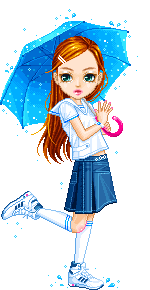 like the boy Seryozha
like the boy Seryozha
The children took everything to the game.
Seryozha quarreled
And hurt the kids.
He scolded and teased
He showed his tongue.
And now his boys
They don't even want to see.
No need to call friends
After all, from the "evil tongue"
Tears, disputes and strife
And resentment for the ages.
And at least Sergey has a lot of toys
But no friends, no girlfriends.
Nobody plays with him
He sits alone and is bored.
And he doesn't know what to do next.
Why did the children stop playing with Serezha in the yard?
What does "evil tongue" mean?
What feelings arise when you are called names. Teasing?
What should Serezha do?
I'm redundant. A. Barto.
They dug cherries.
Sergey said: - I'm superfluous.
Five trees, five guys.
I went out into the garden in vain.
How ripe are the cherries
Serezha runs into the garden.
- Well, no, now you're superfluous! -
The guys are talking.
What were the children doing?
How did Seryozha behave?
And why did the guys tell him that he was superfluous?
What does "As you sow, so shall you reap" mean?
"Mom" K. Kublinskas.
Mom, very, very I love you all the time,
I love you! Mommy, I love it!
I love it so much that at night the dawn is shining,
I don't sleep in the dark. It's already dawn
I peer into the darkness, no one in the world
I'm hurrying the dawn. There is no better mother!
How does the child talk about mom?
How do you feel about your mom?
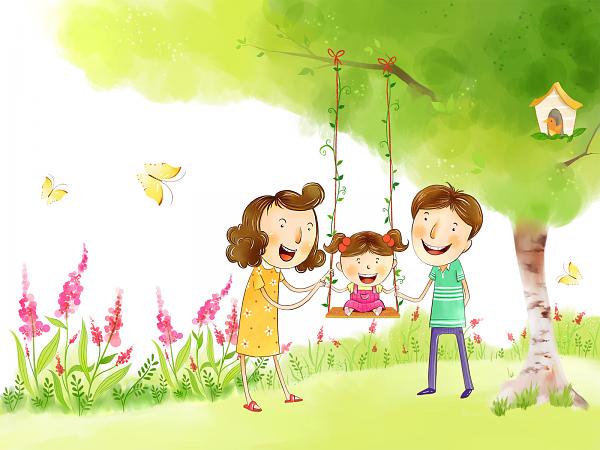
I am Akim. "My kindred".
Mom and dad are my relatives,
I have no relatives.
Both sister and brother
And a lop-eared puppy Tishka.
I love my family very much
Soon I will buy gifts for everyone.
Papa will have a motorboat,
Mom in the kitchen a magic brush,
Real hammer - brother,
The ball is for my sister, the candy is for Tishka.
And I also have a friend
Friend Seryozhka is also related to me.
I run to him in the morning
Without him, the game is not a game for me.
I tell him all the secrets
I will give him everything in the world.
What feelings does the boy have with his relatives?
What are your feelings towards a friend?
What gifts did he pick up for his loved ones? Why?
What character traits does the boy show?
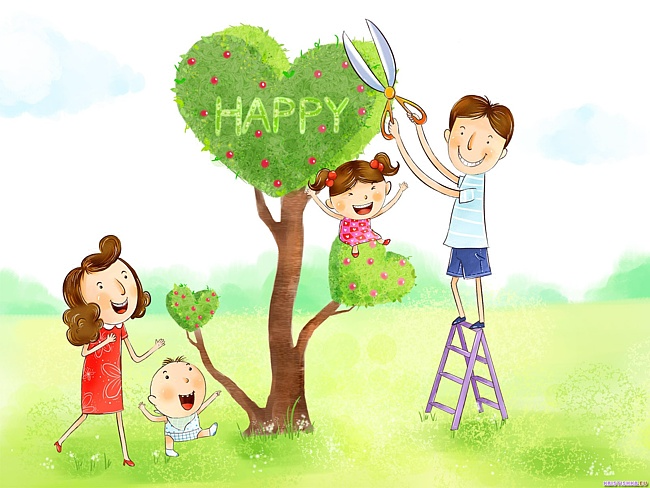
Despite the fact that communication with the mother is most important for the child, he gradually begins to establish contact with other close people. The child seeks to please those who are dear to him, to please them.
"Kindergarten" E. Chepovetsky.
Kindergarten is a garden
Where the trees stand in a row
And on every branch
The kids are growing up
ruddy, happy,
Screaming, pugnacious,
Attached to the bows
Like candy wrappers on a Christmas tree.
And laugh and buzz
Like bees in May...
What is kindergarten
Of course I know.
What do you think about kindergarten??
How do you feel about going to kindergarten??
Who is waiting for you in kindergarten?
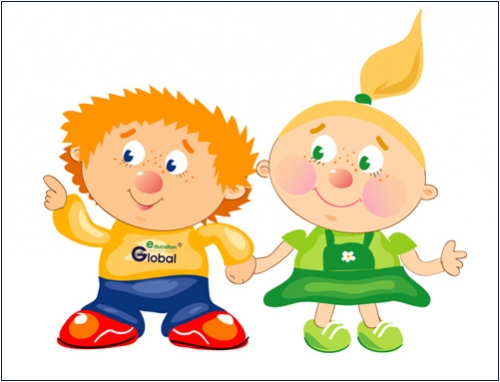
"The main rule" G. Dyadin.
There are pawn games
There are chess games
With kegs and pins.
Balls and tags.
There are games with chips.
There are stick games
Roulettes and all
Other gimmicks.
There are different games
And there is only one rule.
Must be the rule
All respected:
HARM
AND STOMP YOUR FEET,
IF YOU LOSE!
What games are discussed in the poem.
Do I need to follow the rules of the game? why?
What is prohibited in games? Why?
"Away".
- Hello, Irisha, come in,
Be our guests.
If you want, sit
To relax.
Look if you want
beautiful book
If you want to shake
Teddy bear.
But Petya's brother came here
FROM 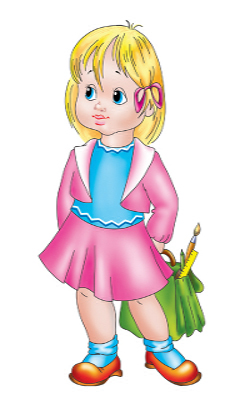 to tease girls.
to tease girls.
- Ksyushka rattle,
Irishka is a piece of wood.
At our Ksyushka's
Freckles on the nose!
Young ladies - madams,
I will throw you into the hole!
Girls offended
They stepped aside.
But Petya immediately quickly
Shouted after
- Ksyushka-stick-behemoth
She has a two meter mouth!
Dad came up to Pete,
And he looked sternly
Took another into the room
Well, Ksyusha and Irisha
They sang and danced for a long time
Cake with sweets ate.
Who broke a big vase. A Kushnir.
Who broke the big vase?
I confessed, but not immediately.
Let them think a little.
Let's look at the cat.
Maybe the cat broke it?
Maybe I'm not to blame?
Cat, did you break the vase?
Pity the gray passage.
The cat squints at the light
And he can't say no.
I still hesitated
With half a minute - and confessed.
What happened to the boy?
What feeling did he experience?
Why didn't the boy confess right away?
Who did he want to blame?
Did he do the right thing when he confessed?
What can be called his act?
And how did the boy feel when he confessed?
What happened next?
What would you do?
Has this happened to you? How did you do?
Greedy. I am Akim.
I don't ask the greedy man for anything.
I will not invite a greedy person to visit.
A good friend will not come out of the greedy,
You can't even call him a friend.
What does it mean to be greedy?
Is being greedy good or bad? Why?
What do you call a person who shares with everyone?
Man. E Blinova.
If a boy cries
So there is a reason.
If he hides tears
So he is a man.
Can boys cry? When?
When are boys called men?
V. Orlov. Quiet, quiet.
Quiet, quiet, quiet, quiet
We will go through the room.
Quiet on the couch
We will sit down together.
Let's sit quietly with you
Maybe an hour, maybe two.
We will speak quietly
Very quiet words.
Behind the window is quiet, quiet
Maple about something rustles.
Everywhere is quiet, quiet, quiet,
Because mom is sleeping.
Why are the children sitting so quietly?
What character traits do they have?
How do you take care of your mom?
E. Stekvashova. Disservice.
To me, as a true friend,
The bear rendered a service:
Instead of a bowl, he is for the sake of
Gave a whole hive of honey!
I love honey but don't like it
I get bee stings.
What a service was rendered in the poem.
Why is it called a bear.
What feeling did you experience after such a service /
"About the porcupine Gosha" (Author's).
In a cheerful, hot Africa
Gosh lived a porcupine.
Loved to walk in Africa
Attract attention.
Scattered toys around the house
And then,
He listened to his mother's cries
With a happy happy face.
That Gosh went to school,
Didn't like to study.
In class, he grimaced,
And he teased the girls.
And everyone laughed at him
And he was pleased
What a lot of attention
Received for it.
Near the house in the yard
The animals played on the sand.
Gosha quietly approached
He trampled everything and left.
He received a lot of attention that day,
But he didn't feel any pleasure.
In the evening, Gosha went to bed.
And he fell asleep very quickly.
He had a terrible dream
How everyone turned their backs and chased him out.
Nobody wants to play with Gosha
And even my mother does not want to understand.
Here is a good dream.
Gosha plays with all the animals.
He is friends with an elephant and a hedgehog.
He builds a sand house with the Zebras.
He collects toys in a dream,
And mom kisses him and hugs him.
Gosha woke up, thought a little.
I'll try to be good.
I made my bed, I folded my pajamas,
He ate the whole breakfast and thanked his mother.
Mom kissed him back
And it became very pleasant for the porcupine
And at school he showed himself exemplary,
He listened carefully and did not disturb anyone.
I learned to count, solve and write.
And the teacher gave him an "5".
And after school he played with sand
And he built the most beautiful house.
Everyone admired his skill,
He was glad about it, but a little embarrassed.
His day was not wasted.
For his good deeds
favorite, blueberry
Mom baked a pie.
And here Gosha is sitting at the table
And the porcupine Gosh thinks about
How good it is to be good
And everyone will love you.
Who is the main character of the fairy tale?
How did the porcupine Gosha behave at the beginning of the tale?
What did he want?
Would you like to be noticed?
How did Gosha try to get attention? What do you think was his mistake?
What has Gosha become? What has changed in his life?
Children sometimes attract the attention of adults without realizing what they are doing badly, and adults scream and scold. A child sometimes has enough of such attention, he has achieved his goal. Praise your child more, even for trying to do something, communicate more, talk, show him your love. Scold only for the act. If the child feels That he is needed, loved in his family, he has a sense of security. And on this basis, a benevolent, open attitude towards the world, cheerfulness and a positive attitude towards oneself develop.
I. Tokmakova. Draw cat.
It's nobody's cat
She doesn't have a name.
At the broken window
What kind of life does she have here?
She's cold and damp
The cat's paw hurts.
And take her to my apartment.
My neighbor won't let me.
The task: guess what happened next? Choose the best option.
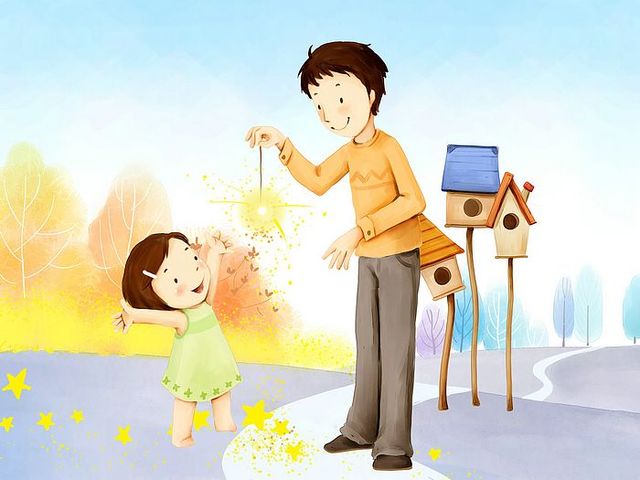
E. Blaginina Kitten.
I found a kitten in the garden. I took him home.
He meowed thinly, thinly. Fully fed...
He meowed and trembled. Soon my kitten became
Maybe he was stuffed just a feast for the eyes.
Or did he run away?
The day in the morning was rainy, Wool - like velvet,
Gray puddles everywhere ... Tail - a pipe ...
So be it, unfortunate animal, how good-looking!
What character traits does a girl have?
How did she do?
What can you call her action?
